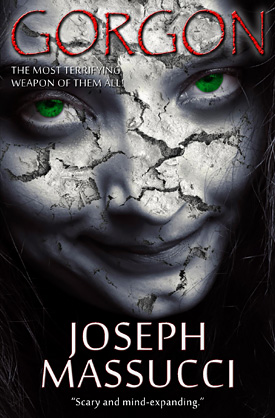by Writer's Digest | Feeds
Dialogue benefits from variety. A good way to maintain your reader’s interest is to insert a variety of beats into your dialogue. Beats are descriptions of physical action — minor or major — that fall between lines of speech. Try the following techniques to... by Writer's Digest | Feeds
The sentence you are currently reading has the potential to brand itself indelibly upon our cultural consciousness and to alter the course of Western Civilization. OK, maybe that’s an exaggeration. But what author doesn’t dream of crafting an opening line that will... by Writer's Digest | Feeds
As a novelist and writing instructor, I’ve noticed that three of the most vital aspects of story craft are left out of many writing books and workshops. Even bestselling novelists stumble over them. And if you master these simple principles for shaping great stories,... by Writer's Digest | Feeds
Sometimes, when I’m cutting a deadline too close, I’ll set the TIMER ON THE STOVE and tell myself I’ll write for at least an hour. Rarely have I heard the chime and wanted to stop. And I always feel good about actually using the stove for something. EATING SNACKS VERY... by Writer's Digest | Feeds
When you decide to go to a restaurant for a special dinner, you enjoy the anticipation. You’ve committed to spending sufficient time and money, and now you’ve arrived, and the place looks good and smells good. You smile and order an appetizer. When it comes, you enjoy... by Writer's Digest | Feeds
From the Writer’s Digest Grammar Desk Reference by Gary Lutz and Diane Stevenson. Let’s examine the embellishments that either limit meaning or add further information (as well as direction, color, and detail to the basic grammatical unit). Modifiers and Other Parts... by Writer's Digest | Feeds
What is flash fiction? Exact definitions can vary by specific market, but generally, complete stories of fewer than 1,500, 1,000, 500 or even 300 words can be classified as flash fiction. Other terms play companionably in the same sandbox, including short-short... by Writer's Digest | Feeds
My neighbor John loves to work on his hot rod. He’s an automotive whiz and tells me he can hear when something is not quite right with the engine. He doesn’t hesitate to pop the hood, grab his bag of tools and start to tinker. He’ll keep at it until the engine sounds... by Writer's Digest | Feeds
If your goal is to get published, that’s great. As an agent with thirty-plus years experience developing fiction careers, though, I can tell you that your thinking is too limited. Getting published is not the end of the road, but the beginning. Sizeable audiences... by Writer's Digest | Feeds
1. Use Straightforward Language The most fundamental way to simplify writing is to use simpler words. Simple words — whether verbs, nouns or adjectives — tend to have broader connotations, while complicated words have more specific meanings. Thus, you have a lower... by Writer's Digest | Feeds
Good fiction takes time. You cannot sit down at the keyboard and pound out the Great American Novel in one or two sessions. (Take it from me; I’ve tried.) No, we must be patient with our art and our craft, we must read, we must study, we must write. And write, and... by Writer's Digest | Feeds
When I began work on my memoir, Hold Me Close, Let Me Go: A Mother, a Daughter and an Adolescence Survived, about my daughter’s action-packed coming of age, I didn’t know a thing about arcs. I thought, I lived this story. I’ll just write it down the way it happened.... by Writer's Digest | Feeds
All stories contain four elements that can determine structure: milieu, idea, character and event. While each is present in every story, there is generally one that dominates the others. Which one dominates? The one that the author cares about most. This is why the...

Recent Comments